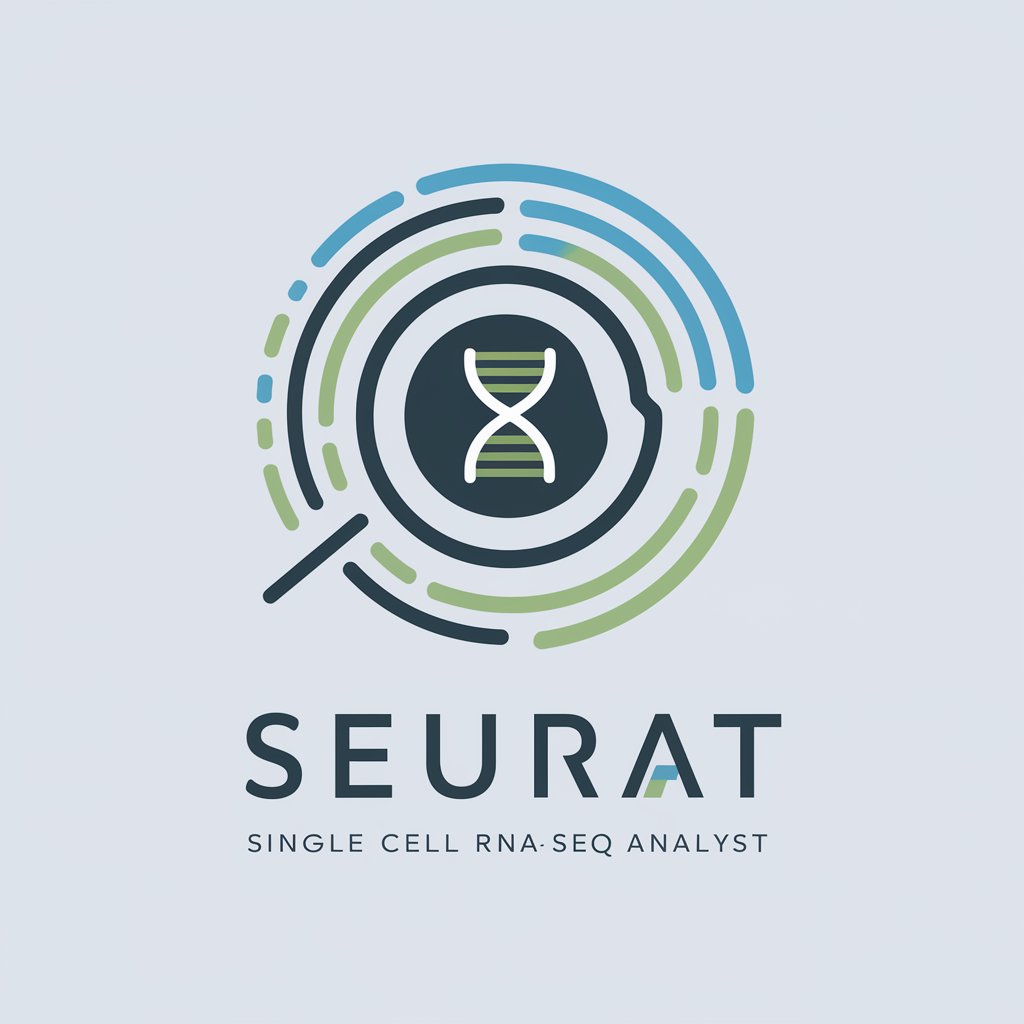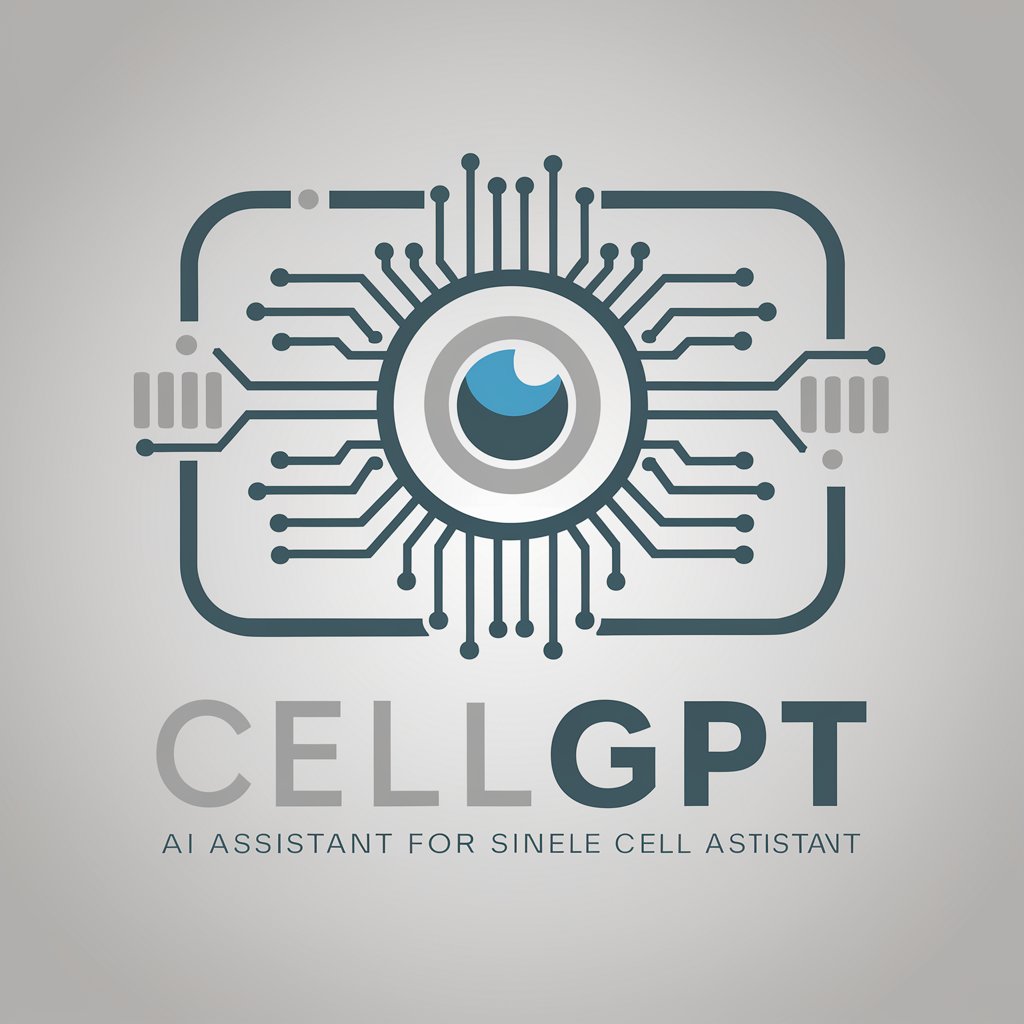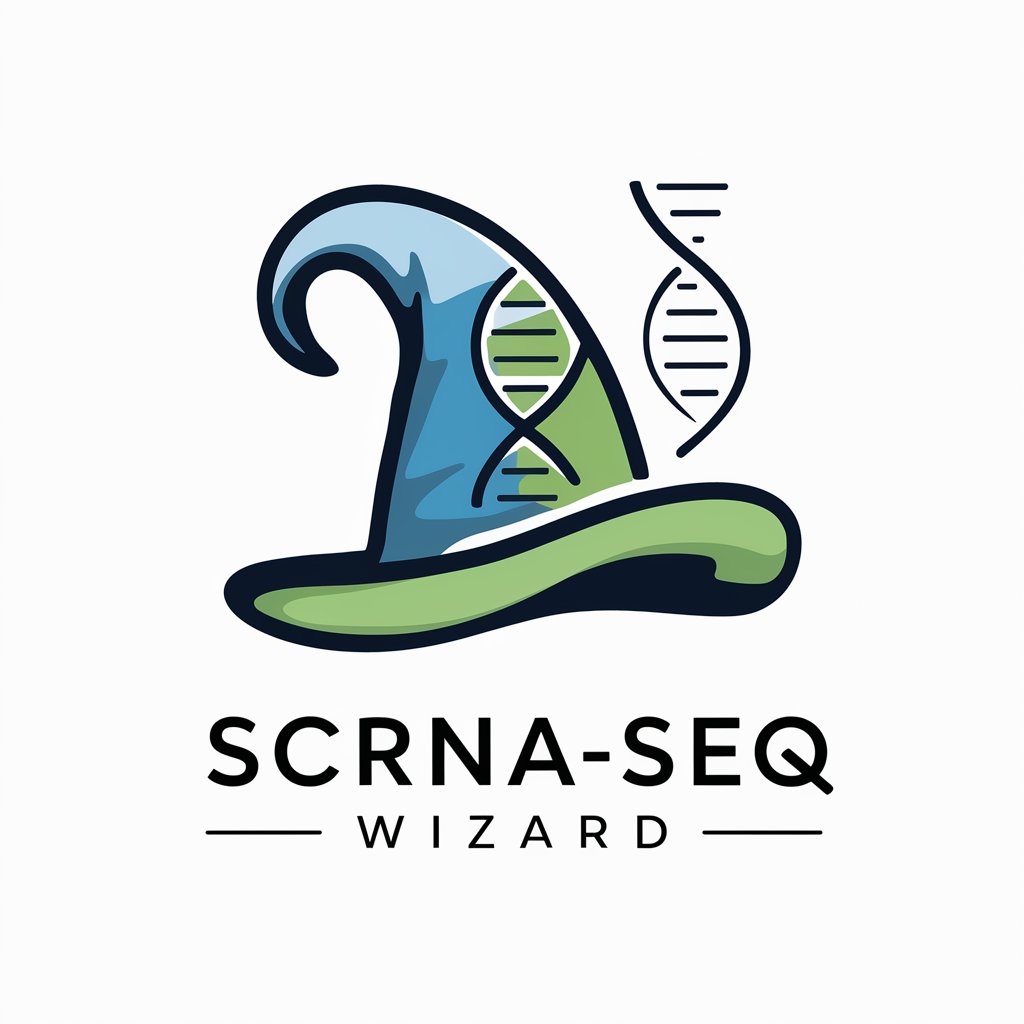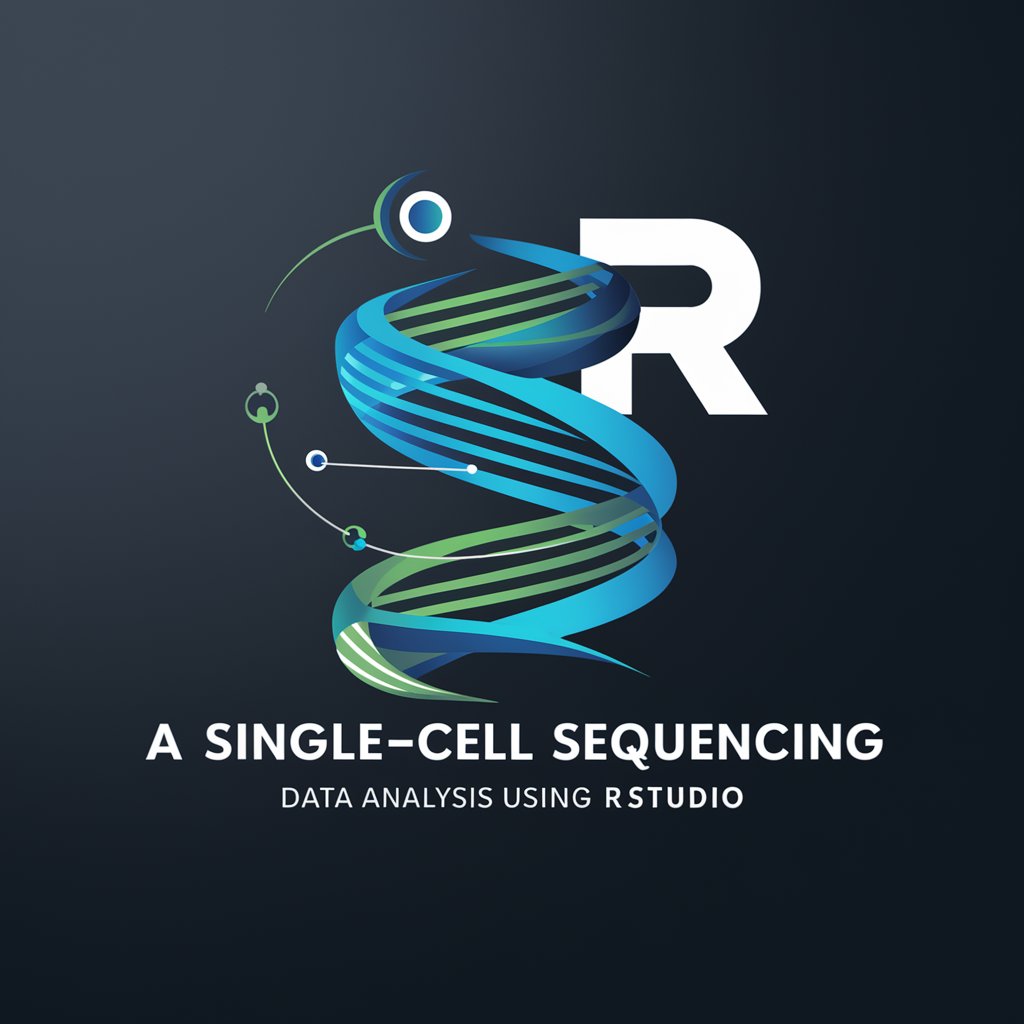
Single Cell Explorer - Single Cell Analysis Tool
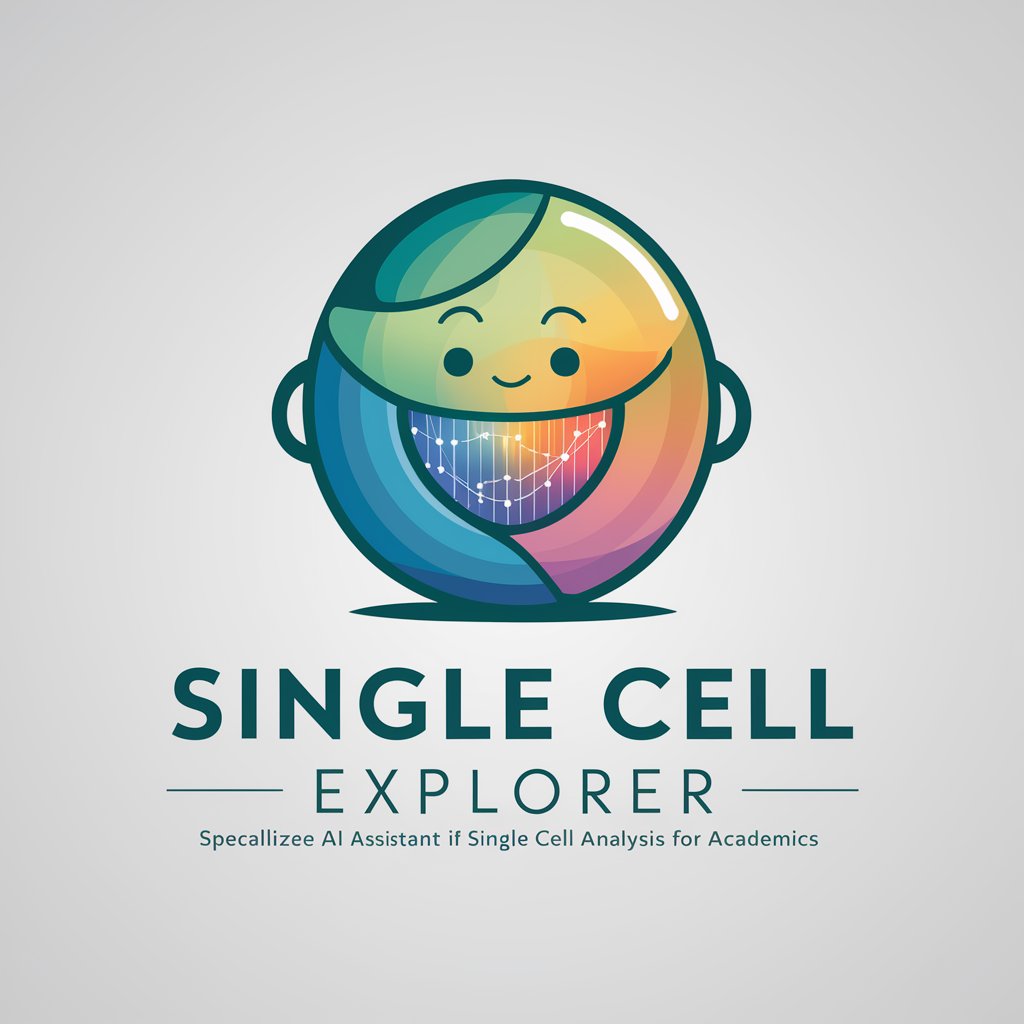
Hey there! Ready to dive into some single-cell analysis?
Unravel Complex Biology with AI-Powered Analytics
Can you explain the process of single-cell RNA sequencing?
What are the latest advancements in single-cell analysis techniques?
How can I best visualize my single-cell RNA-seq data?
What are the common challenges in single-cell data integration?
Get Embed Code
Overview of Single Cell Explorer
Single Cell Explorer is designed as an advanced assistant for academics and researchers in the realm of single cell analysis. It's engineered to provide nuanced, up-to-date information, guidance, and insights in this rapidly evolving field. The primary aim is to assist in interpreting complex single cell datasets, offering advice on experimental design, data analysis techniques, and visualization strategies. For example, if you're working on single-cell RNA-sequencing (scRNA-seq) data, I can guide you through data preprocessing steps like normalization, error correction, and feature selection, or help in deciphering clustering results and differential expression analyses. Powered by ChatGPT-4o。

Core Functions of Single Cell Explorer
Data Analysis Guidance
Example
Assisting in interpreting scRNA-seq data, guiding through dimensionality reduction techniques like t-SNE or UMAP.
Scenario
A researcher working on a dataset from a heterogeneous tissue sample could use this function to identify distinct cell populations and their gene expression profiles.
Experimental Design Consultation
Example
Providing insights into the selection of appropriate single-cell technologies based on the sample type and research question.
Scenario
A team planning to study tumor microenvironments might need advice on choosing between single-cell ATAC-seq and single-cell RNA-seq, considering their specific objectives.
Data Visualization Strategies
Example
Suggesting effective ways to visualize complex datasets, like using heatmaps or violin plots for gene expression data.
Scenario
For a researcher attempting to present findings on cellular heterogeneity in a clear, comprehensible manner, I can recommend and explain the most suitable visualization techniques.
Target Users of Single Cell Explorer
Academic Researchers
Researchers in academia who are involved in single cell studies, especially those new to the field, will find Single Cell Explorer invaluable for navigating the complexities of single cell data analysis and experimental methodologies.
Biotech Professionals
Professionals in biotechnology companies engaging in drug discovery or biomarker research using single cell technologies can utilize Single Cell Explorer to streamline their research and enhance their data interpretation capabilities.
Graduate Students
Graduate students specializing in genomics, bioinformatics, or related fields will benefit from Single Cell Explorer's educational insights and practical guidance on cutting-edge single cell analysis techniques.

How to Use Single Cell Explorer
1
Start by visiting yeschat.ai for a hassle-free trial that requires no login or ChatGPT Plus subscription.
2
Explore the available tools and features specifically designed for single cell analysis, such as data visualization and gene expression profiling.
3
Upload your single cell data, ensuring it's in a compatible format (like CSV or Excel), to begin your analysis.
4
Utilize advanced analytics options for clustering, differential expression analysis, and lineage tracing to gain insights into your data.
5
Take advantage of the community forum and support resources for troubleshooting, tips, and collaboration opportunities.
Try other advanced and practical GPTs
受験に勝つ!本日の「勝ち飯」献立bot
Nourish Your Brain, Ace Your Exams
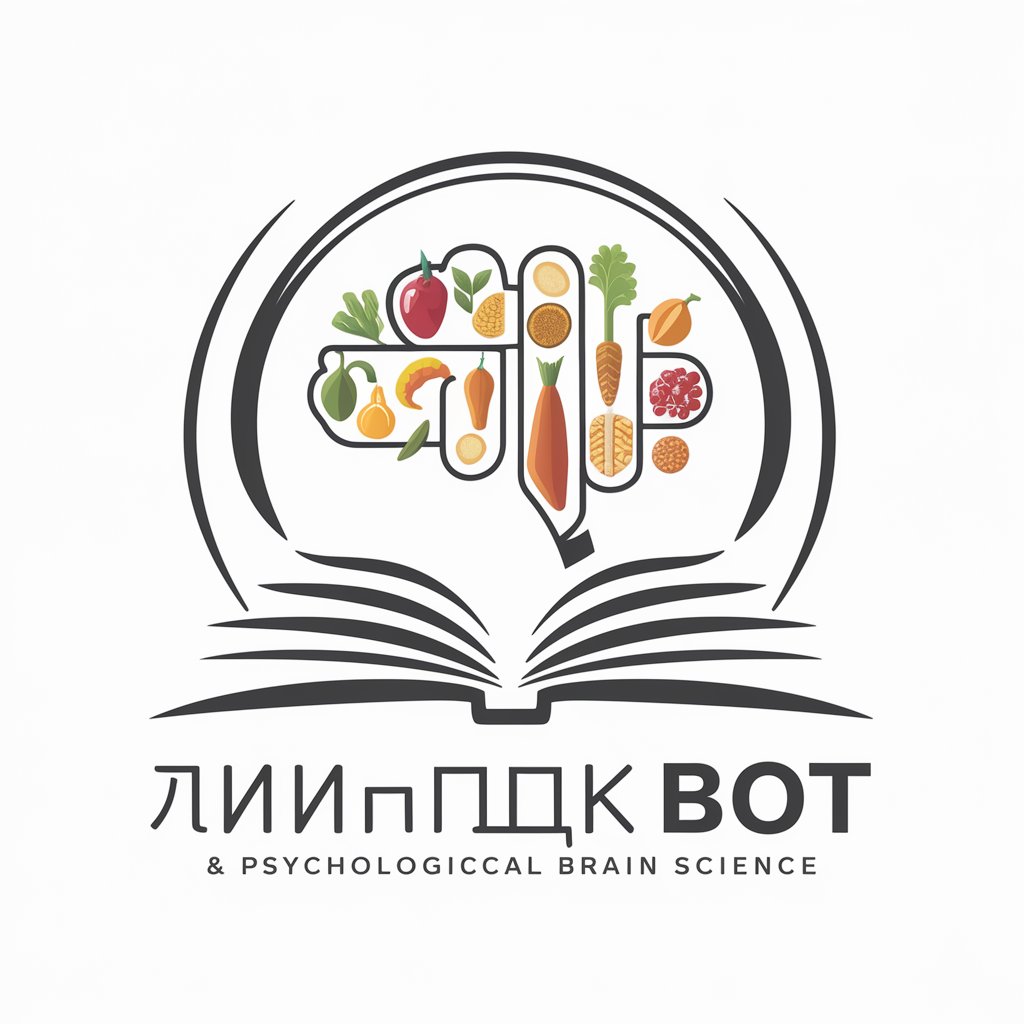
SnobBot
Unveiling the World of Music with AI

MentalModelsGPT
Navigate Complex Decisions with AI Intelligence
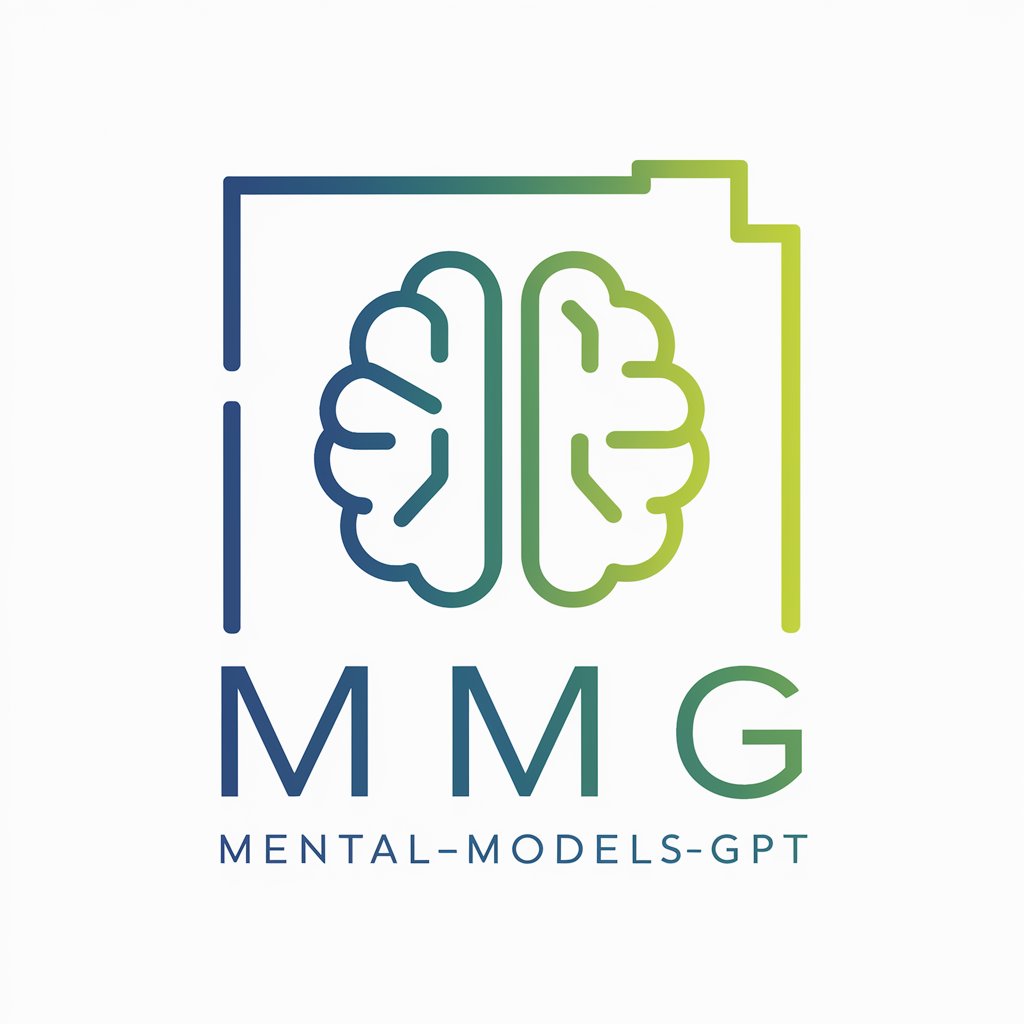
Habit Mastery
Empower Your Habits with AI

Mystic 8 Ball GPT
Decipher Your Fate with AI

toonGPT
Bringing Children's Drawings to Life with AI

FramerGPT
Design Smarter, Build Faster with AI

Interview Architect
Craft Insightful Interviews with AI

Taxes Master
Navigating Taxes with AI-Powered Precision

Toon Crafter
Bringing stories to life with AI-powered illustrations.

AI英文法チェック
Enhance Your Writing with AI Power

英会話パートナー
Talk Smart, Learn Smarter - AI-Powered English Practice

Frequently Asked Questions About Single Cell Explorer
What data formats are supported by Single Cell Explorer?
Single Cell Explorer supports common formats like CSV, Excel, and others specific to single cell data, such as .h5ad and .loom.
Can Single Cell Explorer handle large datasets?
Absolutely! It's optimized for handling large-scale datasets, ensuring efficient processing and analysis of extensive single cell data.
Is there any community support or forums for users?
Yes, there's an active community forum for users to share insights, ask questions, and collaborate on projects.
Does Single Cell Explorer offer visualization tools?
Indeed, it provides a range of visualization tools for gene expression, cell clustering, and trajectory analysis.
Are there any tutorials or guides for beginners?
Certainly! There are comprehensive guides and tutorials available to help beginners get started with single cell analysis.
